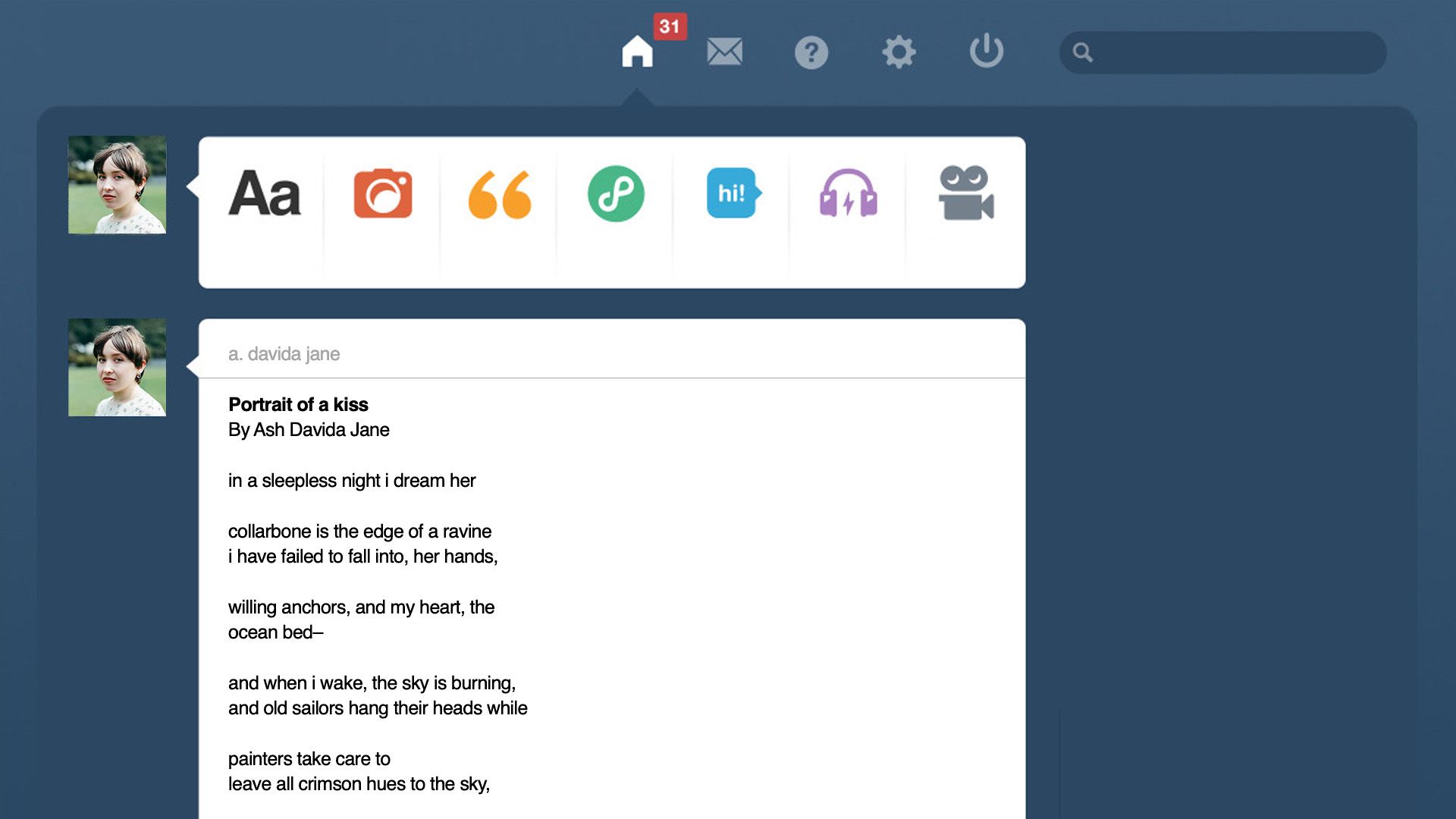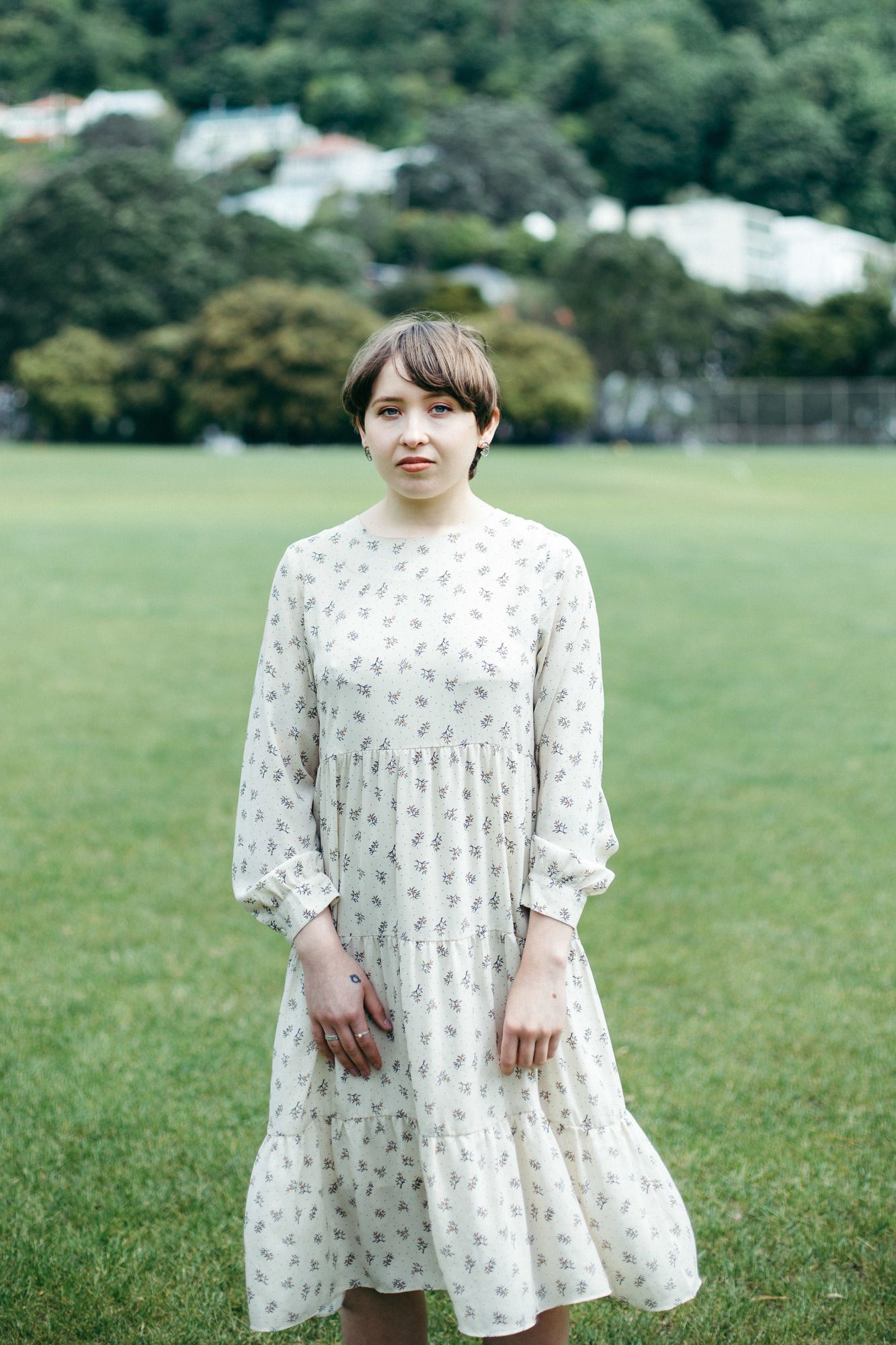The Golden Age of Online Poetry
Ash Davida Jane reminisces on the glory days of Tumblr for discovering writing.
For a few years now, poets who deem themselves ‘literary’ have been shaking their proverbial fists at the phenomenon of Insta-poetry, insisting that it isn’t real poetry. “Anyone can chuck a few line breaks in a sentence and post it on Instagram,” the poets cry. This anger would never have gained any momentum if the so-called ‘Insta-poets’ weren’t proving to be wildly successful, making more money from their writing than ‘real’ poets could ever imagine. During the early days of this pointless feud (is it a feud if only one side cares?, something magical was happening in a completely different part of the internet. I think of 2012–2015 as the Golden Age of Tumblr, and the most gilded of all were the poets.
I think of 2012–2015 as the Golden Age of Tumblr, and the most gilded of all were the poets.
The platform itself was much better suited to poetry than Instagram is, largely because of the ability to re-share posts to your own followers. Popular poems would garner hundreds of thousands of ‘notes’ (a combination of likes and reblogs) and reach all corners of the website. This included the intense fandom-bloggers, who’d write tags under the post about how your love poem specifically represented the relationship between two anime characters.
Tumblr was the first place I ever shared my writing with other people, under my first three initials ‘a.d.j.’, then ‘a. davida jane’. I wasn’t out to anyone in my family, or even to all of my friends, and I was terrified that someone I knew in real life would stumble across my queer little poems and find me out. This wasn’t an irrational fear, as before long some of the work I posted started to take off. The legacy of this fear survives – I still publish my writing under my first and middle names only. I’m not worried about being found anymore, but it’s not a great move to change your name while you’re trying to build a career.
A particular passion of this online community was poetry about myth. It was like a whole genre in itself – obsessed at first with Greek and Roman mythology, but soon branching out into others. There were long debates about the distinction between mythology and religion, and the ethics of writing about deities that don’t belong to you. Tumblr girlies will remember the discourse. I wrote myth poetry as well, obviously. I was studying classics in high school so I felt I had a little more knowledge than some of my fellow writers. Some of them seemed to completely mis-characterise these figures, like they were getting all their information from Wikipedia and the Percy Jackson book series. One poem I wrote about Persephone still occasionally crops up in my social media mentions, to my severe embarrassment.
Tumblr girlies will remember the discourse
The first girl I ever dated was also part of this world. I couldn’t believe it when we met. There was another girl interested in poetry and mythology – and girls – in Hamilton??? (There were probably hundreds, thinking about it now, but my homophobic all-girls high school didn’t really encourage self-expression). She had quite a large following on Tumblr, to the point that when I went on an exchange to London in my first year of university, a stranger there recognised me as her girlfriend. We had a whole community of friends online, some of whom I met in real life, and even some I’m still friends with now. Obviously online safety had been hammered into all of us at school, but what online predator is willing to spend hours reblogging Richard Siken quotes, writing essay-length analyses of Donna Tartt’s The Secret History, and designing graphics for poems about the Trojan War?
The depressed teenager who feels out of place in their hometown is a cliché, but I know so many people who thrived on the friendships they made online in their late teens. Looking back at it, my life as a writer now has a version of everything that online scene gave me when I was 16. It’s where I had my first writing groups, honest critique and encouragement about my poems, a place to play with formatting and even publishing my writing, and other poets who wanted to read and talk about poetry. Now I get these things in real life, with wine. But I don’t know if I’d be doing it if it weren’t for what I learned about writing back then. It’s also the first time I encountered poetry that wasn’t the Yeats / Auden / Shakespeare / [insert other old white man] I had to read in English class.
My life as a writer now has a version of everything that online scene gave me when I was 16.
My first book came out of my blog following, as a small UK press was keen to pick up collections by young women who were writing online and already had an audience. They published books by two other writers I knew before they approached me. I think I was 17 when I signed my contract. The manuscript was full of the kind of yearning only a queer teenager with undiagnosed depression and very little life experience is capable of. I was so proud of it. It was also the first time anyone in my family really read anything I’d written. That was terrifying, but being published was the external validation I’d been looking for. I look back at that book now in the same way I do my younger self – I love her, but I don’t see myself in her anymore. I think you can still buy it online somewhere, but it feels like a past life.
I don’t know what it’s like on Tumblr anymore. Everyone I know drifted away from it around 2015. I know there are ghosts of my old poems still floating around, and maybe even the deserted husk of an old blog. I don’t think I even have the email address my account was attached to anymore. That world is well and truly gone, but it survives a little in the people I know from back then. We watch each other’s Instagram stories and send heart reactions. And, maybe, an echo of it survives in the work of a certain generation of writers, and the urge to put your whole self out there in a poem.
Portrait of a kiss
By Ash Davida Jane
in a sleepless night i dream her
collarbone is the edge of a ravine
i have failed to fall into, her hands,
willing anchors, and my heart, the
ocean bed–
and when i wake, the sky is burning,
and old sailors hang their heads while
painters take care to
leave all crimson hues to the sky,
and paint my mouth, curving into
hers, with only the softest pink.
(Every Dark Waning, 2016)

